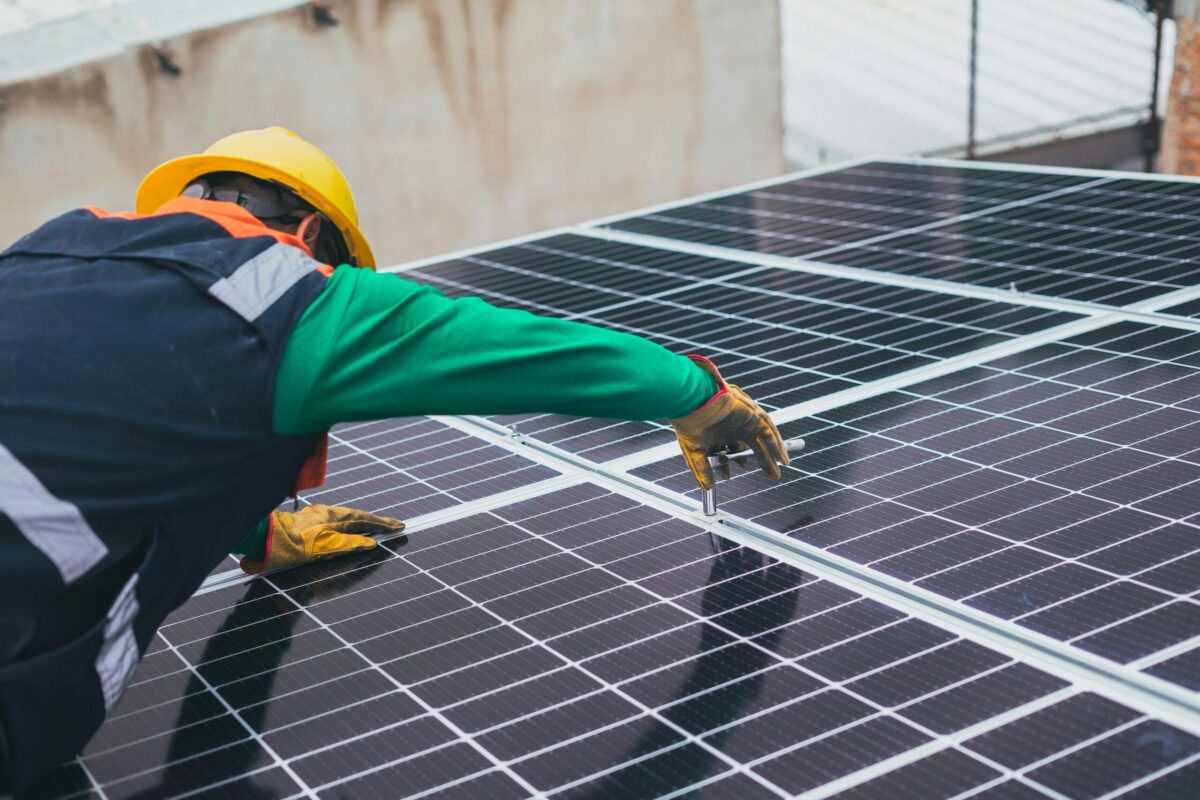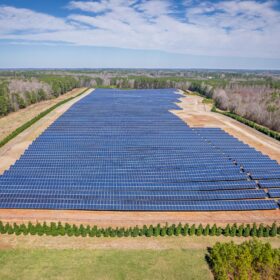It’s been a red-letter week for the EDF Group at home and abroad.
First, the France-based group announced an aggressive plan to install 30 GW of solar capacity in its home country, while in the United States its subsidiary EDF Renewable Energy commissioned 179 MW-AC in Apex, Nevada, becoming the first operational utility-scale solar plants built in the Bureau of Land Management’s Solar Energy Zones.
EDF RE acquired Switch Station 1 and Switch Station 2 from First Solar, who began development of the project three years ago. Power from the plants will be purchased by NV Energy by means of long-term power-purchase agreements.
The Switch Station 1 and Switch Station 2 projects are helping Switch, a high-tech data center developer, move close to achieving their goal of powering all their facilities with 100% clean energy.
“Less than a decade ago, Nevada’s solar energy landscape was nonexistent, but this commissioning helps fulfill the vision I had to make our state the leader in renewable energy development,” said U.S. Senator Harry Reid (D-Nevada). “A technology giant like Switch committing to using 100% renewable energy is truly visionary and grows our clean energy economy by creating hundreds of good-paying labor construction jobs here.”
The project was completed in approximately 12 months and are comprised of 1,980,840 solar panels covering the equivalent of 275 football fields.
“The project represents another clear demonstration of EDF RE’s ambition in the solar business and also our first opportunity in Nevada, a state with world-class solar resources,” said Cliff Graham, vice president of U.S. development for EDF RE. “EDF RE is positioned to invest $3 billion between now and 2020 in renewable projects across the country; we anticipate to deliver on our projection and bring more jobs, tax dollars and investment to Nevada.”
The commissioning comes nearly two years after the Public Utilities Commission of Nevada seemed to put the future of rooftop solar in jeopardy by precipitously eliminating net metering, a policy reversed earlier this year by Governor Brian Sandoval and the legislature.
However, NV Energy has been working overtime to build its own utility-scale solar plants, which allows solar to move forward in the state while keeping its production under the utility’s control.
This content is protected by copyright and may not be reused. If you want to cooperate with us and would like to reuse some of our content, please contact: editors@pv-magazine.com.








By submitting this form you agree to pv magazine using your data for the purposes of publishing your comment.
Your personal data will only be disclosed or otherwise transmitted to third parties for the purposes of spam filtering or if this is necessary for technical maintenance of the website. Any other transfer to third parties will not take place unless this is justified on the basis of applicable data protection regulations or if pv magazine is legally obliged to do so.
You may revoke this consent at any time with effect for the future, in which case your personal data will be deleted immediately. Otherwise, your data will be deleted if pv magazine has processed your request or the purpose of data storage is fulfilled.
Further information on data privacy can be found in our Data Protection Policy.